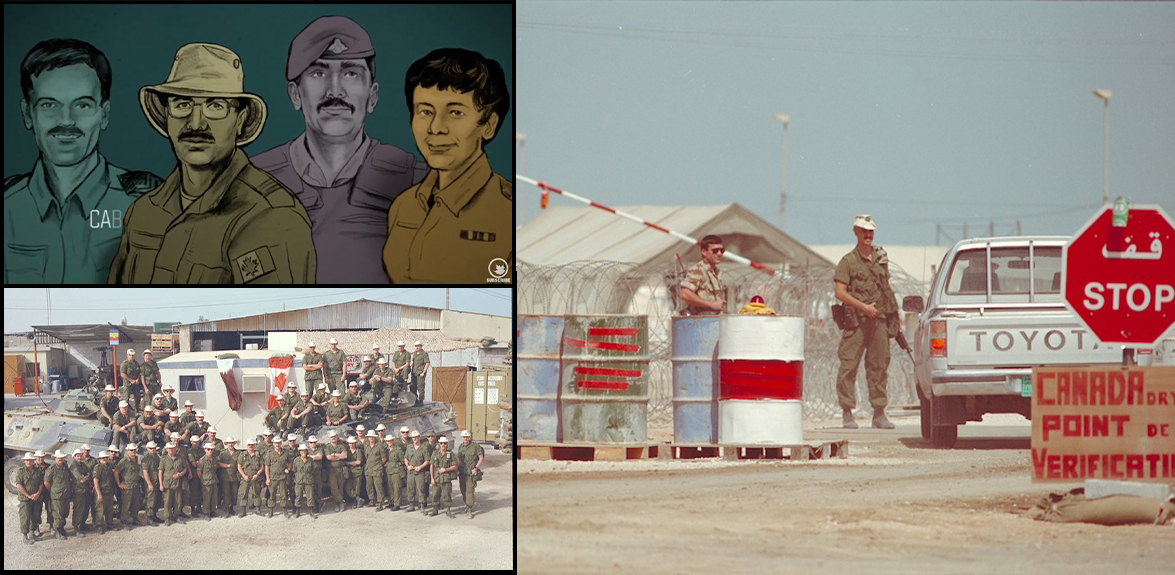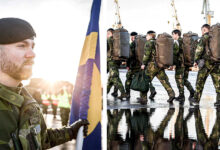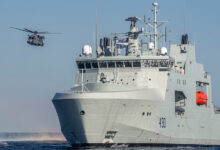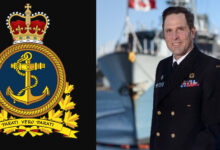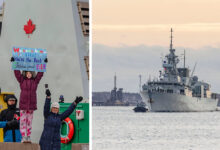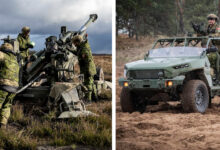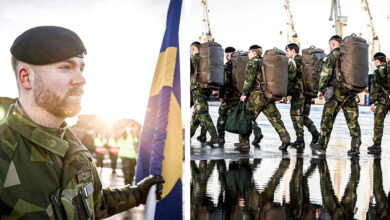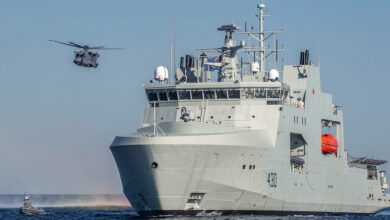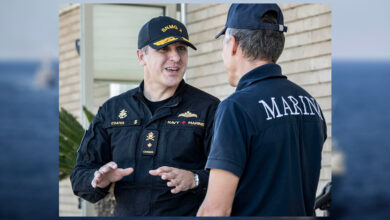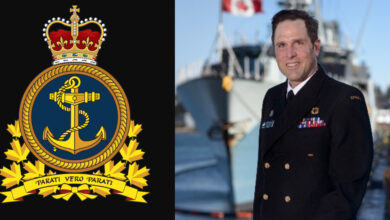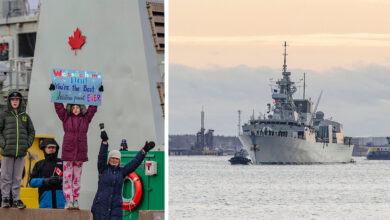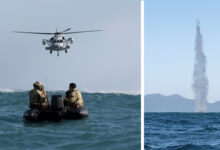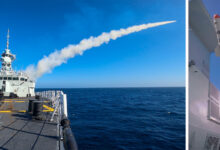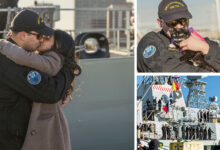Operations
Marking the 30th anniversary of the Gulf War
Above images courtesy of the Department of National Defence, Canadian Armed Forces and Historica Canada.
It’s been 30 years since the Gulf War came to an end on February 28, 1991, almost seven months after Iraqi forces invaded Kuwait.
More than 4,000 Canadians served during the Gulf War from 1990 to 1991.
After Iraq invaded Kuwait, Canada joined a coalition of more than 35 countries to liberate the nation. Canada’s contribution numbered more than 2,700 Canadian Armed Forces (CAF) personnel in the region at one time.
Canada suffered no loss of life during the Gulf War, but the burdens many returned home with were heavy, and some carried them for the rest of their lives.
Remove the Invading Forces
The goal of the conflict was to remove the invading forces of Iraq from Kuwait.
“During February, we pay tribute to the thousands of Canadians who served in the Middle East during the Gulf War,” Harjit Sajjan, minister of national defence, stated.
He continued, “The land, air and sea support they provided to the multinational coalition contributed greatly to liberation of Kuwait, and the continued Canadian presence along the Iraq- Kuwait border in support of the United Nations enabled further security in the years following the end of the war. To those who served, we are forever grateful for your service.”
Canada’s first military actions came at sea in August 1990, when three Canadian warships joined the Coalition fleet that secured the waters off Iraq and occupied Kuwait.
Largest International Coalition
The coalition was the largest international coalition of military personnel since the Second World War. In October 1990, Canadian CF-18 fighter aircraft were sent to the Middle East to help take control of the skies above the Gulf. Canadian medical, communications, logistical, and security units would also play important support roles in the conflict.
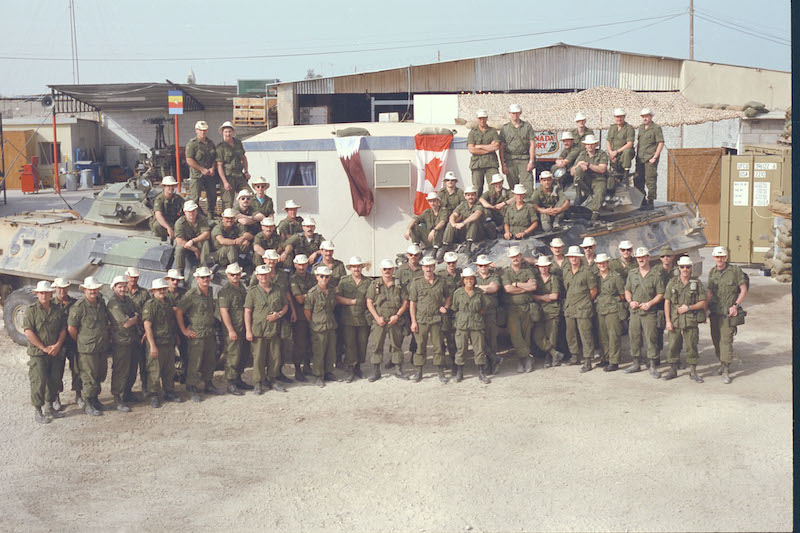
On August 2, 1990, the Coalition gave Iraq a deadline to withdraw their troops. The United Nations also gave the authorization to use any means necessary to enforce this.
From January 16 – 17, 1991, Operation Desert Storm began as Coalition forces launched a fierce air campaign after a final deadline for Iraq’s withdrawal was ignored. These were Canada’s first air-to-surface attacks since the Korean War.
Thirty Years Later
“For those of us who were around, watching the start of Operation Desert Storm still stands out as one of those moments that will always stay with you. Thirty years later, it’s incredibly important we make sure that the generations that follow remember the contributions that thousands of Canadians made during the Gulf War. We thank them for their remarkable service today,” says Lawrence MacAulay, minister of veterans affairs and associate minister of national defence.
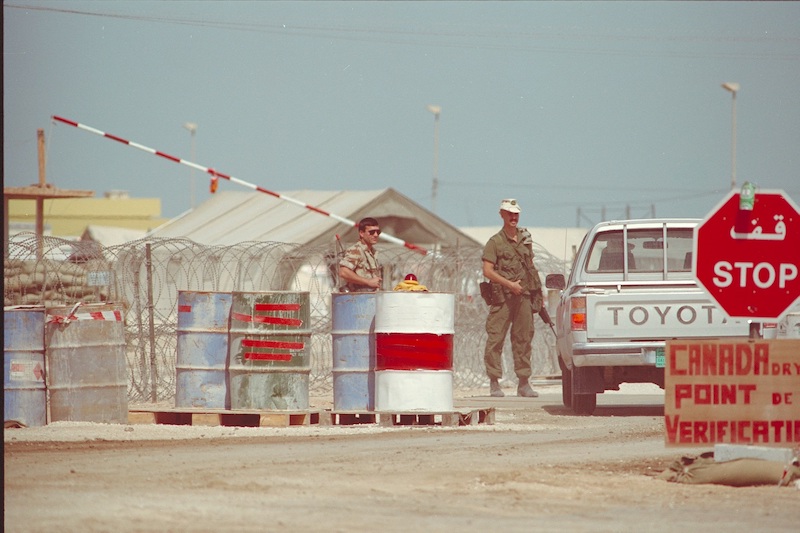
An armoured and infantry ground offensive that commenced on February 24, which rapidly pushed the Iraqis out of Kuwait, followed the air-to-surface attacks. Coalition forces ceased the offensive on February 28, 1991, and offered a cease-fire, which Iraq accepted on March 3.
First Time Female CAF Members Served in Combat Trades
The Gulf War was the first time female CAF members served in combat trades, and they went on to play important roles on land, in the air, and at sea.
On January 17, 2021 Historica Canada released the video Canada and the Gulf War: In their own words. The video provides educators an opportunity to present oral history as a valuable source and incorporate firsthand accounts into classroom activities and discussions. The project was produced by The Memory Project.
Canada suffered no loss of life during the Gulf War, but the burdens many returned home with were heavy, and some carried them for the rest of their lives.


